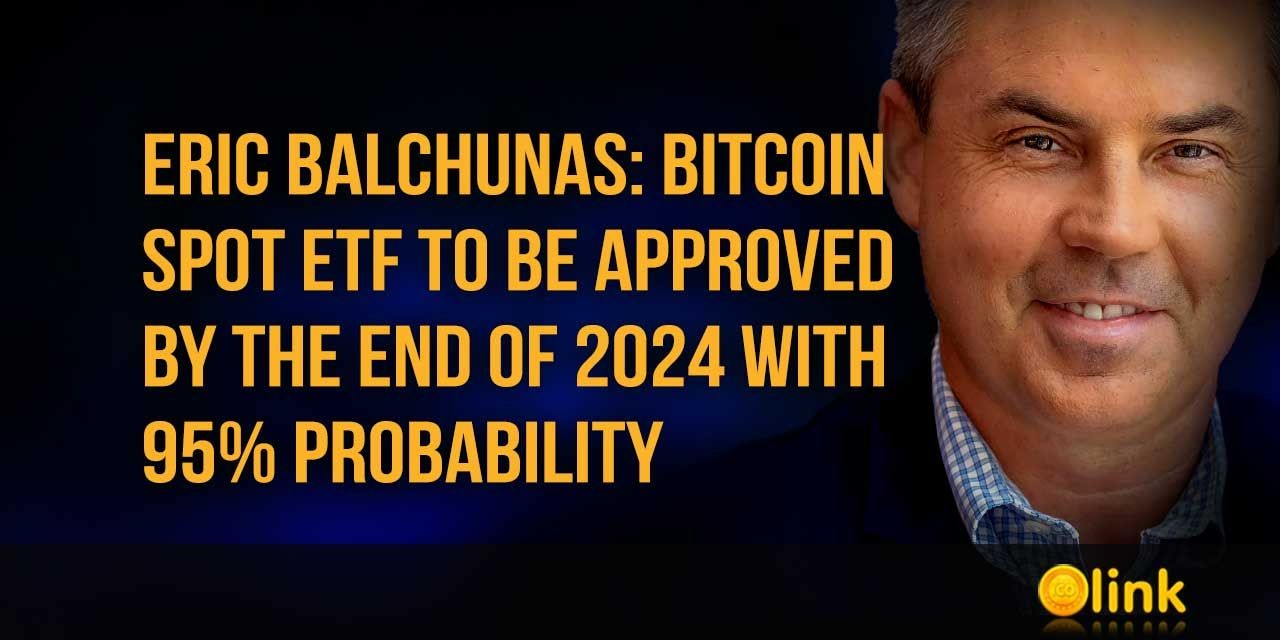Eric Balchunas: Bitcoin Spot ETF to be Approved by the End of 2024 with 95% Probability
The Inevitability of Spot Bitcoin ETFs by 2024: Analyzing Eric Balciunas' Groundbreaking Prediction
When industry experts speak, the world listens, especially when the conversation revolves around disruptive technologies like cryptocurrencies. Recently, Bloomberg's Senior ETF Analyst, Eric Balciunas, dropped a bombshell—raising the likelihood of a spot Bitcoin ETF launch in 2023 to 75% and astonishingly to 95% by 2024. Why this sudden boost in optimism? How has a legal ruling against the U.S. Securities and Exchange Commission (SEC) impacted these odds? What are the broader implications for cryptocurrency investors and the market at large? Let's break down these monumental claims and what they signify for the future of digital assets.
In an unprecedented turn of events, an American court recently overturned the SEC's decision to reject Grayscale's application for a spot Bitcoin ETF. The ruling has effectively become a game-changer, compelling market analysts like James Seyffart and Elliot Stein to echo Balciunas' confidence.
One critical point to highlight is that the SEC isn't just an arbitrary agency; it operates within set timelines. This court ruling substantially challenges the regulator's latitude for further delays and rejections. In essence, the legal structure is cornering the SEC to act—and act fast.
Eric Balciunas hasn't just focused on the legal aspects; he's shrewdly assessed the PR disaster that the SEC has been facing. With widespread media coverage scrutinizing the regulator's actions, the SEC's reputation has taken a significant hit.
The extensive coverage of the court's decision in popular media outlets amplifies the reputational damage to the SEC. Balciunas argues that this adverse PR, coupled with legal setbacks, is politically forcing the SEC's hand. Further denial of spot Bitcoin ETF applications would be tantamount to digging a deeper hole for itself, making an already shaky situation even worse.
While Balciunas has been making headlines with his bold projections, it's crucial to note that he isn't singing a solo. Marathon Digital CEO Fred Thiel has also chimed in, supporting the notion that the SEC will likely green-light Bitcoin ETF applications sooner than later.
A rising tide lifts all boats, and in this case, the rising optimism is lifting the hopes of multiple stakeholders. The agreement among industry leaders adds weight to Balciunas' claims, further ramping up pressure on the SEC to take affirmative action.
If Balciunas' optimistic projection turns out to be accurate, the ramifications would extend far beyond the domain of Bitcoin and ETFs. Let's consider the broader implications.
Approval of a spot Bitcoin ETF will not merely add another financial product to the shelves; it will be a catalyst that could trigger an avalanche of institutional investment into Bitcoin. In simpler terms, the approval is not just a drop in the bucket; it's potentially the entire bucket.
The approval of spot Bitcoin ETFs will lend an air of legitimacy and stability to cryptocurrencies, historically viewed as volatile and risky. This shift could mark the beginning of a new era where cryptocurrencies join the ranks of more traditional, accepted asset classes.
Balciunas' remarkable prediction isn't simply the byproduct of wishful thinking or overzealous optimism. Instead, it's rooted in legal realities, buttressed by a growing expert consensus, and highlighted by a media storm that leaves the SEC with dwindling options for further refusals. The clock is ticking, and while there's still a chance that the SEC might extend application review deadlines, the agency is increasingly backed into a corner.
What we're witnessing here is not merely a market analyst's opinion but the confluence of legal judgments, expert consensus, and public sentiment, converging to make the approval of spot Bitcoin ETFs by the end of 2024 not just likely, but inevitable.
As we stand on the brink of a significant shift in the cryptocurrency landscape, Balciunas' predictions offer more than just foresight. They serve as a clarion call for both casual investors and institutional players to wake up and recognize the seismic shifts underway in the financial market. If the predictions hold true, we're not just looking at a change in Bitcoin's fortunes; we're likely observing the birth of a new epoch in the financial world—one that acknowledges, legitimizes, and integrates digital assets as never before.






